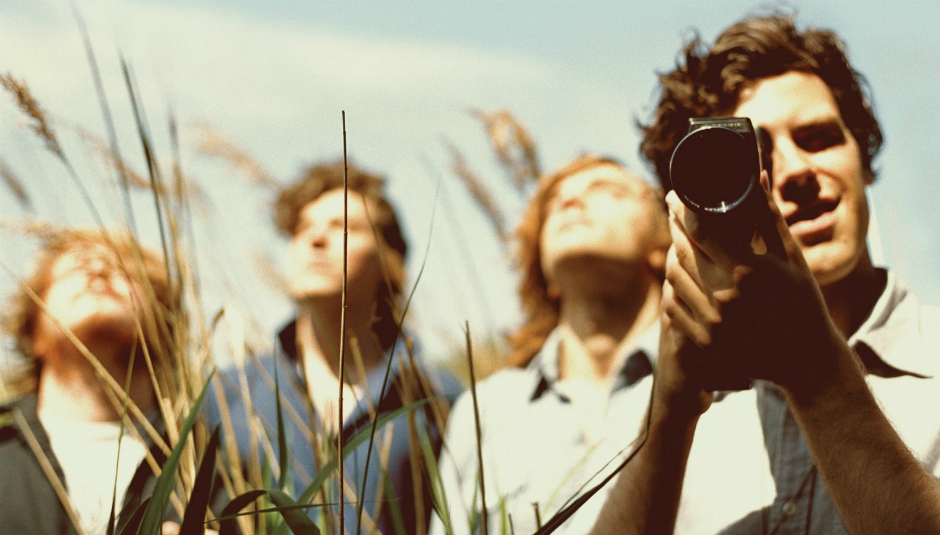The term “breakup album” brings with it all sorts of connotations. It’s easy to conjure up the stereotypical power-ballad image of Celine Dion or Kelly Clarkson, but the sometimes-maligned genre has some exceptionally strong examples which burrow into the deepest and most crucial depths of the human emotional spectrum.
Enter The First Days Of Spring by Noah And The Whale. As two of the leading purveyors of that specific brand of indie folk popular at the time, it is widely believed to be about lead singer Charlie Fink’s split from one-time band member, Laura Marling. Throwing off the cobwebs of their debut effort, which was by no means bad, The First Days Of Spring excavated new depths in a subtly masterful mixing of simple ideas with detailed execution.
The album also came alongside a short film made by the band, where every possible clichéd arty trope is ticked, including: cycling up empty roads, writing a novel on a typewriter, and driving an old Morris Minor. Fink appears in future guise as an old man who still hasn’t gotten over his breakup, and Daisy Lowe also features in one section as Fink’s ex-girlfriend. It’s like watching an extended music video, but it gives a deep insight into the album’s themes as a whole. I love this album for its full-circle depiction of the end of a relationship, and it feels like there is one song for each mental state experienced through the process, all mixed up within the tracklist. I also love that the band takes old and familiar ideas and rephrases them with an almost cinematic touch.
Slow, tribal drums open the long intro to the first track, and the lyrics are cautious, providing an overarching theme to the whole album. “Well I do believe that everyone has one chance, to fuck up their lives / Like a cut-down tree, I will rise again / And I’ll be bigger, and stronger than ever before”, is perhaps a hackneyed idea, but it gets delivered so thoughtfully that you almost don’t notice. Sadness and loneliness is interspersed with hopefulness, forming a magnificent emotional web. With long musical interludes, the song is understated and reflective.
This mood is repeated in second track ‘Our Window’, where the listener is transported back to the night of the split. The far-off sounding piano is wonderfully atmospheric, while the tone continues along its less-is-more line, Fink declaring “The stars shining through our window, the stars shining through our window / And it’s been a while since I stared at the stars”. It’s a haunting, ambiguous line; whether about looking forward to a new lease of life, or failing to appreciate the relationship, is left to the listener’s discretion. A teaser glimpse of ‘Blue Skies’ makes for the perfect ending.
‘I Have Nothing’ is perhaps the saddest song on the album, an insight into the betrayals felt as a relationship ends. It’s desperately bleak, and leads into the detached ‘My Broken Heart’. In the film, an old man watches the happiness of his younger relatives with a grumpy, joyless resignation. Again, the band mixes sadness with a flicker of hope: “Broken hearts are a fickle thing, and complicated too / I thought I believed in love, but I’ve never seen it through / I didn’t marry the girl I loved / I saw my world cave in, felt life giving up / But I’ll be laughing again”. The tempo is slow and relaxed, reflecting the band’s easy control over the situation, and the bitter resilient nature of the old man, who remains “impenetrable to pain” after having his heart broken.
Two instrumental interludes frame ‘Love Of An Orchestra’, a song dramatically different to the others. The major and upbeat key mixes with Fink’s lyrics describing the comfort of music during emotional upheaval, and while there’s some detectable irony there, it’s easily the happiest song on the album. The choral backing and use of orchestra instruments highlights the band’s musicianship and versatility and provides a refreshing twist.
‘Stranger’ is about the rebound period, and the lyrics at the beginning are abrasive. The painful, all-too-common feeling of trying to move on too quickly leads to a quiet, mournful refrain that considers the emptiness that follows a split. The song splits in two, leading into a gentle outro where Fink declares, “You know in a year, it’s gonna be better / You know in a year, I’m gonna be happy” in a rising chorus, where backing vocalists join in as it grows.
When ‘Blue Skies’ opens, it feels like everything has been slowly building to this point, as thematically, this is the most over-arching song of the album. Fink finally accepts the break-up, and the mood is positive; the relationship is over, at least for now, as he laments that “I don’t think that it’s the end, but I know we can’t keep going / Oh, 'cause blue skies are coming / But I know that it's hard”. It’s a sentiment that isn’t just applicable to people in Fink’s position, but to anyone who going through any kind of negative experience, delivering an uplifting and powerful message.
‘Slow Glass’ marks the happy point of looking back neutrally on the end of a romance. Employing the same drums as the opening track, it describes the blindness of being in love; “We sing, how your love was like a knife to the back / Well I was stabbed and bleeding, but still begging for attack”. The matter-of-fact delivery conveys a feeling of resolution and peace, and the song is short and sweet, reflecting the brief moments of understanding and clarity that occasionally swim through the melancholy of heartbreak.
‘My Door Is Always Open’ is a mellow, mesmeric finale. It’s a final, sad ode to Fink’s ex-girlfriend, where he describes her beauty but how he’s relieved to be free from the power she had over him. And yet he refuses to rule out the possibility of a future reunion. The sad, confused tangle of words in the first half seem to dissolve into the final minute and a half, where a crescendo of voices and a change of tempo bring the song to a happy, hopeful end. Cathartically, it makes the album feel like the worst of the breakup is done and brought to a final close.
As a whole, The First Days Of Spring repeatedly enunciates the light at the end of a tunnel, and represents the band’s greatest peak. Their split in 2015 was hugely disappointing, but this will always be worth treasuring. Crafting gold from the ruins of a failed relationship is never easy – for the writer, or the listener – but Fink and co succeeded in giving their pain meaning, and speaking to the despair that everyone has felt as those warm feelings of love crumbled around them. The First Days Of Spring remains a bracing listen, and is one of the best contemporary break up albums written this millennium.






















